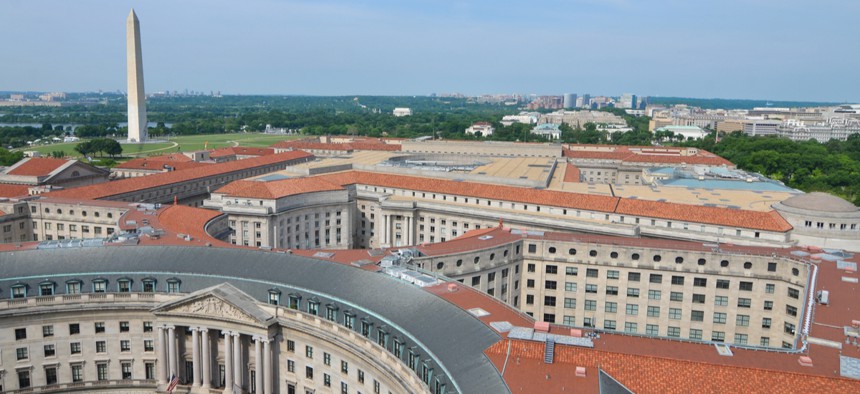Don't Expect a Single Return-to-the-Office Day for Feds, White House Says

Orhan Cam/Shutterstock.com
Recalling employees back to offices will vary across agencies and regions based on mission needs, official says.
Federal agencies will take a piecemeal approach to bringing employees back to their offices in the wake of the novel coronavirus pandemic, according to a White House official, with decisions differing even within regions based on agency needs.
Each agency will recall its workers based on mission needs, an Office of Management and Budget official told Government Executive, and that will likely occur slowly over a wide-ranging period. The decisions will be made in close consultation with local officials in each city and state, as spelled out in an OMB memorandum issued last month.
Federal offices closed due to the coronavirus will not operate “like a snow day,” the OMB official said, meaning they will not reopen all at once. Employees at the Defense Department, for example, who handle national security work and in some cases cannot access classified documents while out of the office, may be recalled more quickly than National Park Service personnel. The decisions will be driven by individual agency leaders, the official added, rather than centralized through the White House or the Office of Personnel Management.
As several states and municipalities around the country begin reopening, federal employees can expect a disparate approach to whether they return to their offices.
“The one-cut thing doesn’t work,” the official said, adding the Trump administration would not take a top-down approach.
In the Washington D.C. region, where the largest contingent of federal employees work, that could mean several more weeks of a “maximum telework” status, as has been the case for nearly two months. Washington’s Mayor Muriel Bowser last week extended the stay-at-home order for the district through at least June 8. Some parts of Maryland and Virginia are reopening, but most of the counties surrounding Washington remain largely shut down.
For the 85% of the workforce outside the D.C. area, return dates will follow the circumstances in the area. In some cases, the evolving needs of the agency could dictate when employees are called back to their offices. The Internal Revenue Service, for example, recently recalled 10,000 employees to prepare for the delayed tax season. OMB and OPM have also said agencies should consider “creative solutions,” such as creating rotational cohorts in which employees come into the office for five days per month. The administration has also encouraged agencies to take a phased approach to reopening, enabling employees the most at risk of severe symptoms from COVID-19 to continue to work remotely as long as necessary.
“As conditions change, agency heads should revisit telework policies and agreements in order to continue progressing to normal operations or address changing conditions while retaining the needed flexibility during the response,” the OMB guidance stated. In addition to mission and local guidance, agencies should consider school and daycare closures, mass transit availability and facility requirements






